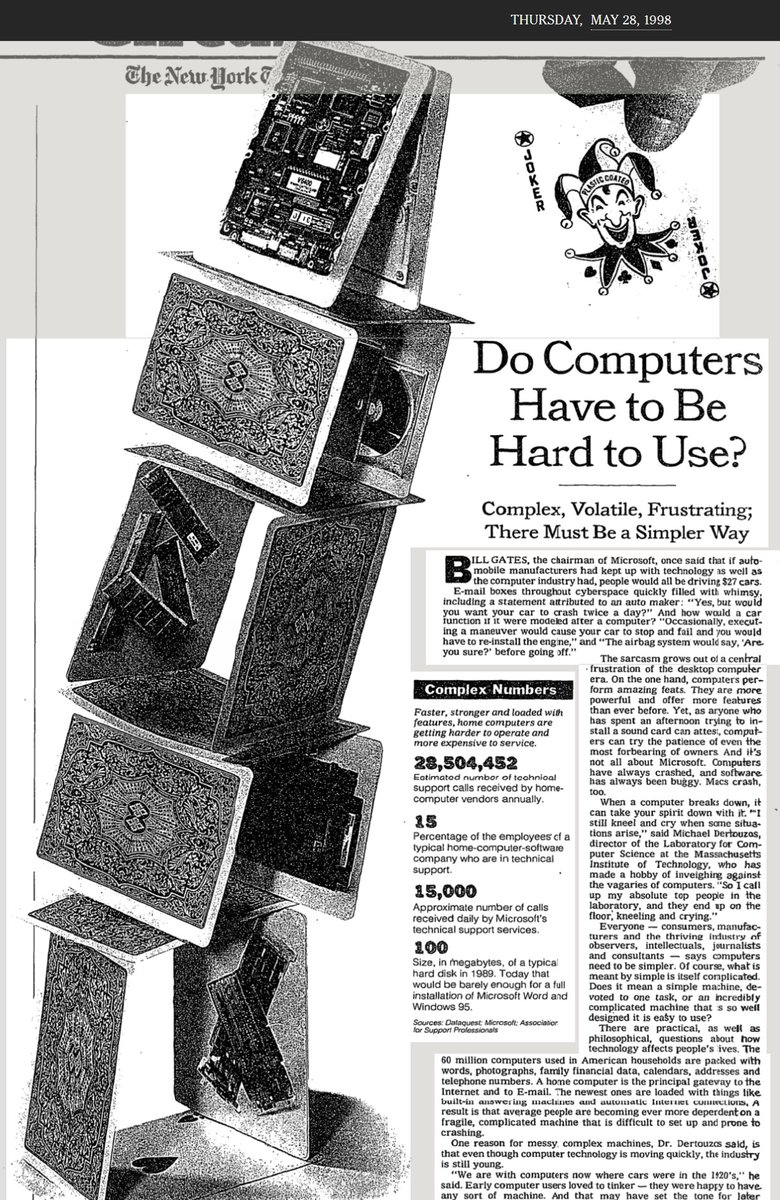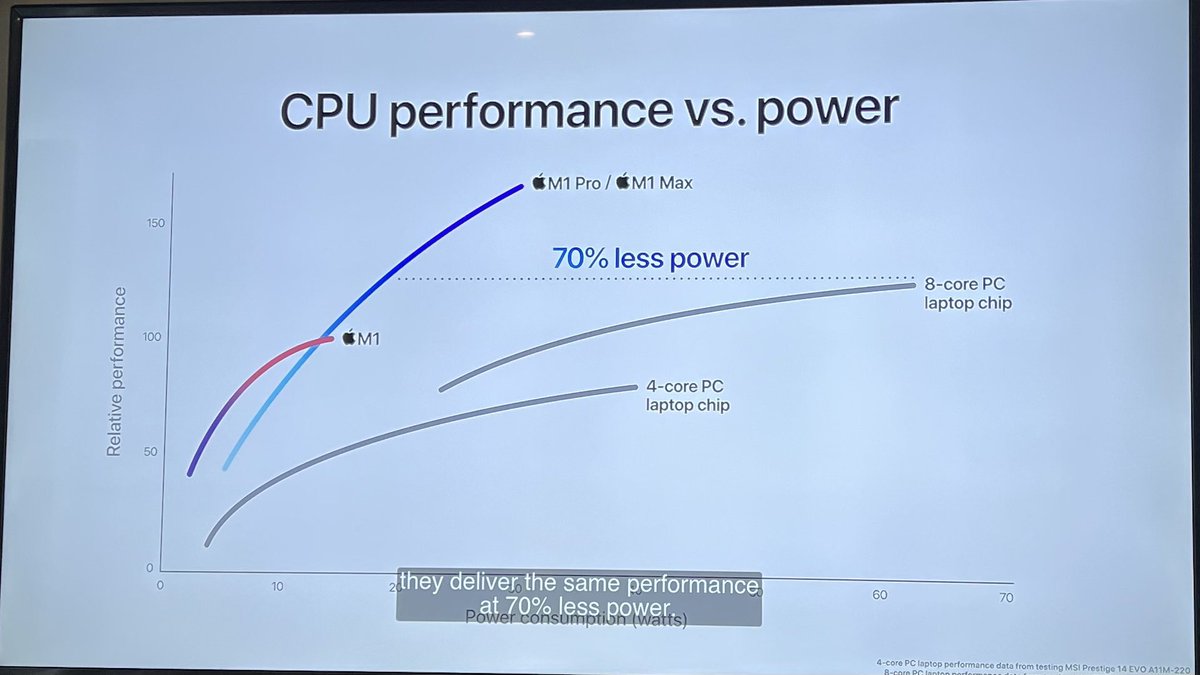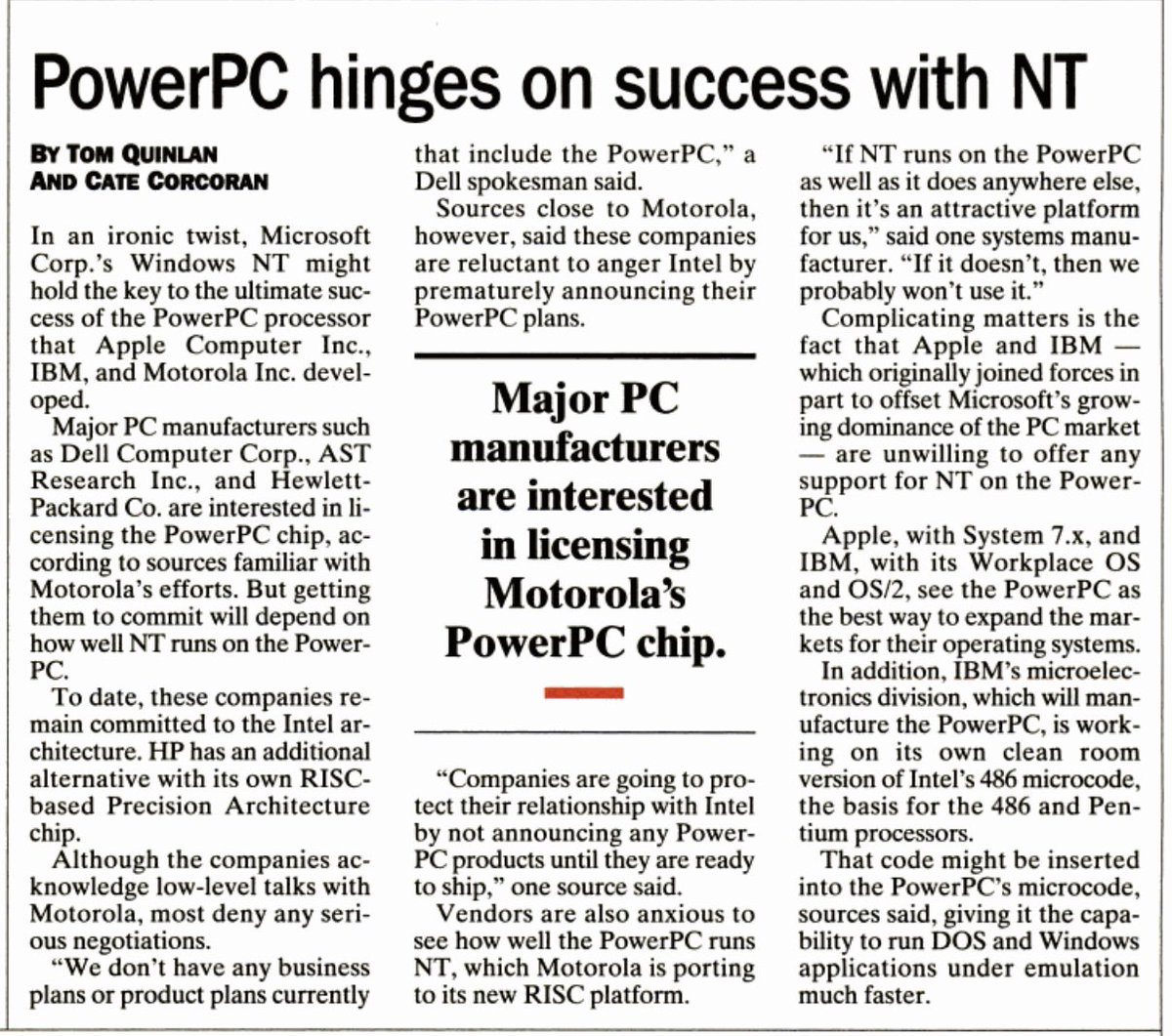
"Alleviating Bloatware, First Attempt" in «Hardcore Software» Software bloat is something we've all heard of, complained about. What is it really? And what do you do about it? It can't just be too many features, or is it? Our first attempt taking it on 1/ …rdcoresoftware.learningbyshipping.com/p/052-alleviat…
2/ As we were developing Office 2000 the constant rumble of "bloatware" grew louder. Everyone seemed to have a different idea of what that meant. Too much disk space. Too much RAM. Too many features. Too many buttons. Review of Office 97 (a huge success) really stung. 

3/ We had many positive reviews. This one really hurt. Every graph was somehow about scale or size.
- IT Manager "couldn't care less"
- "4,500 commands for features useful and arcane"
- "Nothing from a business point of view that was compelling to upgrade"
- IT Manager "couldn't care less"
- "4,500 commands for features useful and arcane"
- "Nothing from a business point of view that was compelling to upgrade"
4/ Maybe it was just that computers were hard to use? Maybe it wasn't so much about Office, but Office was a symbol of PC complexity and failures? Most people didn't actually know the difference between different programs or an OS or just "a computer". 

5/ This one was brutal "Features Supplant Innovation"..."Software makers unable to make real breakthroughs...are giving us 'bloatware' instead."
Wait a minute...features are innovation. We make features. Some of them are useful.
Wait a minute...features are innovation. We make features. Some of them are useful.

6/ Yet every tech review was positive (even with Clippy). Customer satisfaction measures all were very high. Customer support calls were not higher than before.
We were selling millions. It became the industry standard by which all other products were measured.
We were selling millions. It became the industry standard by which all other products were measured.
7/ We even resorted to focus groups. Trying to figure out something actionable.
All we did was make features. It was as though our biggest strength had become our most significant liability. Everything was upside down.
All we did was make features. It was as though our biggest strength had become our most significant liability. Everything was upside down.
8/ We (people like @DeanHach) latched on to the idea that different customers wanted different features. "Your bloat is my favorite feature". We thought about how in ancient Word/Excel (from mid/late 80s). There was an idea of normal/expert mode. Full Menus/Short Menus. 



9/ This was simplicity by obscurity/hiding (something that is all too common). It didn't work back then.
What if we applied "intelligence" to such a feature. It wasn't "modal" but instead product adapted to how you used it. We called these "Intelligent Menus" (and toolbars).
What if we applied "intelligence" to such a feature. It wasn't "modal" but instead product adapted to how you used it. We called these "Intelligent Menus" (and toolbars).
10/ Check out this week's subscriber post for details of how this played out and why. What did we learn? Why is it not so simple to just make things simple?
This was our first attempt at dealing with bloat. Each attempt yields important lessons to share. …rdcoresoftware.learningbyshipping.com/p/052-alleviat…
This was our first attempt at dealing with bloat. Each attempt yields important lessons to share. …rdcoresoftware.learningbyshipping.com/p/052-alleviat…
• • •
Missing some Tweet in this thread? You can try to
force a refresh

















